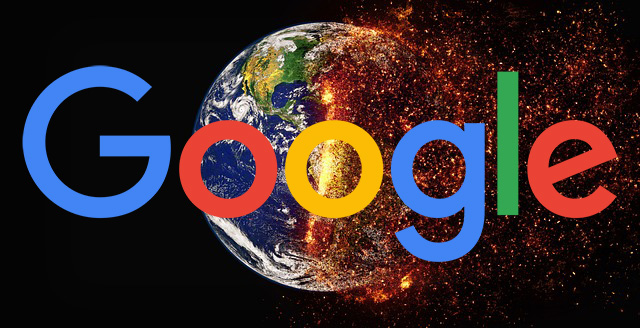
Google is removing ads from digital platforms that spread and promote false statements about climate change. Google is preventing people from profiting from illegal content. The goal is to prevent the spread of misinformation on its platform and to make it difficult for people who deny climate change to profit from such voguish content.
The company mentioned on its blog on Thursday that the restrictions apply to YouTube as well. The platform stated that there was a lot of misinformation about the covid vaccine.
According to Google, a large number of advertising members and publishing partners have expressed dissatisfaction with the dissemination of such inaccurate climate change information. Advertisers are uninterested in having their ads predicted based on such data. Content creators on platforms like YouTube, on the other hand, do not want this content promoted on their page.
Any article or content that conflicts with the issues surrounding climate change, as well as any misleading or misguiding scientific consensus, will be suppressed. Also, avoid monetization, which is the practice of making money from such content.
Not only are the changes or restrictions directed at the publishers, but they are also directed at the content creators or influencers who profit from such content. By promoting their ads on their page, they indirectly agree to the denial of climate change information.
Content that refers to climate change as vague or denies that human activities and greenhouse gases contribute to long-term damage to the earth’s atmosphere will be barred from being published or promoted on the Google platform.
Experts are divided on whether the changes made will serve their intended purpose.
Lisa Schipper, an environmental, social science research candidate at the University of Oxford’s environmental science institution, posed how they will determine which content is appropriate and which is not. She inquired about the judging criteria.
She used the images of clean gas produced by fossil fuel industries as an example. Because of their alternate reality, these images she added are harmless. They may spread false information and suggestions.
Google has stated that once the new policy is implemented, they will regulate automated and expert reviewers to govern the matter. The month of November has been set aside for YouTube publishers and creators, and December has been set aside for advertisers.
Publishers, on the other hand, are still permitted to discuss related issues like climate change policy. Also, as Steve Smith pointed out, such debates are only allowed to be polarised. According to Smith, apart from climate change foods, low-carbon energy and travel are also subject to widespread misinformation.
Last year, Google had annual revenue of $147 billion, one of the highest global digital ad history, and Facebook was right behind it. Both of these platforms have had to deal with a high volume of misinformation on important topics. The misinformation on Facebook was also brought to light when one of its most prominent posters stated that while Facebook is aware of the problem, it does not take action to make money.
